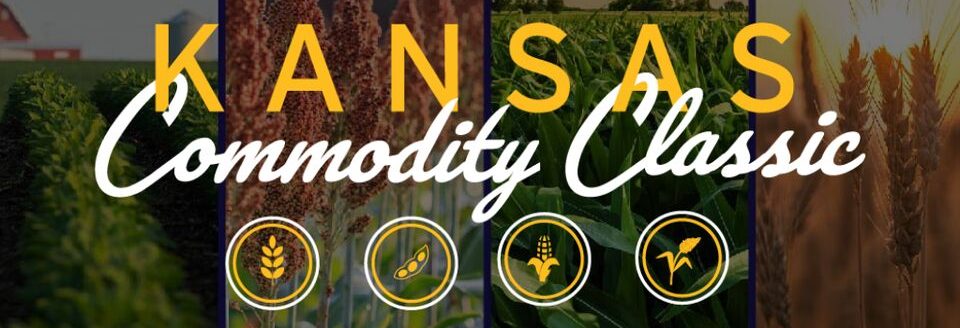Grain producers get updates on farm bill tools
On the heels of a record setting Kansas Corn Symposium, the Kansas Commodity Classic convened producers from across the state in Manhattan on Jan. 24.
“We had just over 200 producers attend the Commodity Classic this year, which was a great turnout considering the weather challenges,” said Stacy Mayo-Martinez, director of industry relations, Kansas Corn Growers Association.
A full day of learning and networking, the event featured presentations that covered pressing issues in agriculture by industry professionals and academia. The unspoken theme of the day was that of perseverance and kicked off with a breakdown of recent farm bill changes and their impacts on Kansas farming operations.
Kansas State University Associate Professor Mykel Taylor shared farm bill updates and explained the things producers should consider heading into the 2019 farm bill signup.
“For some counties and some crops it will be obvious which program, (Agriculture Risk Coverage) or (Price Loss Coverage), will pay out more and for some crops and some counties it will be more of a guess as to which will be a better coverage option,” Taylor said. “For wheat and grain sorghum, PLC will be more likely to pay out in most counties, but it isn’t such a clear-cut case for corn and soybeans. There is a stark contrast in the coverage offered by PLC and ARC and producers need to decide which type of coverage fits their farm’s financial risk exposure.”
Taylor also discussed the university-housed resources available to farmers to help weigh the ARC versus PLC decision.
“There are several tools out there, Kansas State, Texas A&M and University of Illinois all offer a farm bill tool. They all allow a farmer to input their information and see how the likely payouts break-down for their situation,” she said.
Taylor said that the main thing to remember going into 2020 is that farmers are making a 2-year decision.
“We don’t know our prices and yields yet for 2020. That’s the hard part about making a 2-year decision. We just don’t know where those yield and price markers are going to be,” she said.
The event concluded with a message from Allan Gray, a professor at Purdue University and director of the school’s Center for Food and Agricultural Business.
Gray shared the importance of communication, telling attendees to share agriculture’s sustainability story, meet the challenges posed by alternative proteins head-on and accept that technology in agriculture is here to stay.
Laura Handke can be reached at [email protected].

